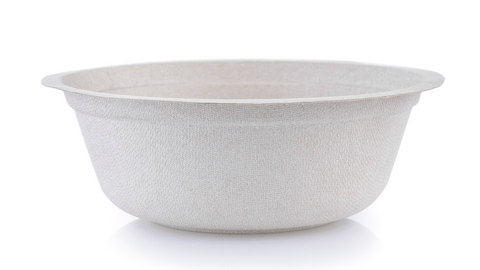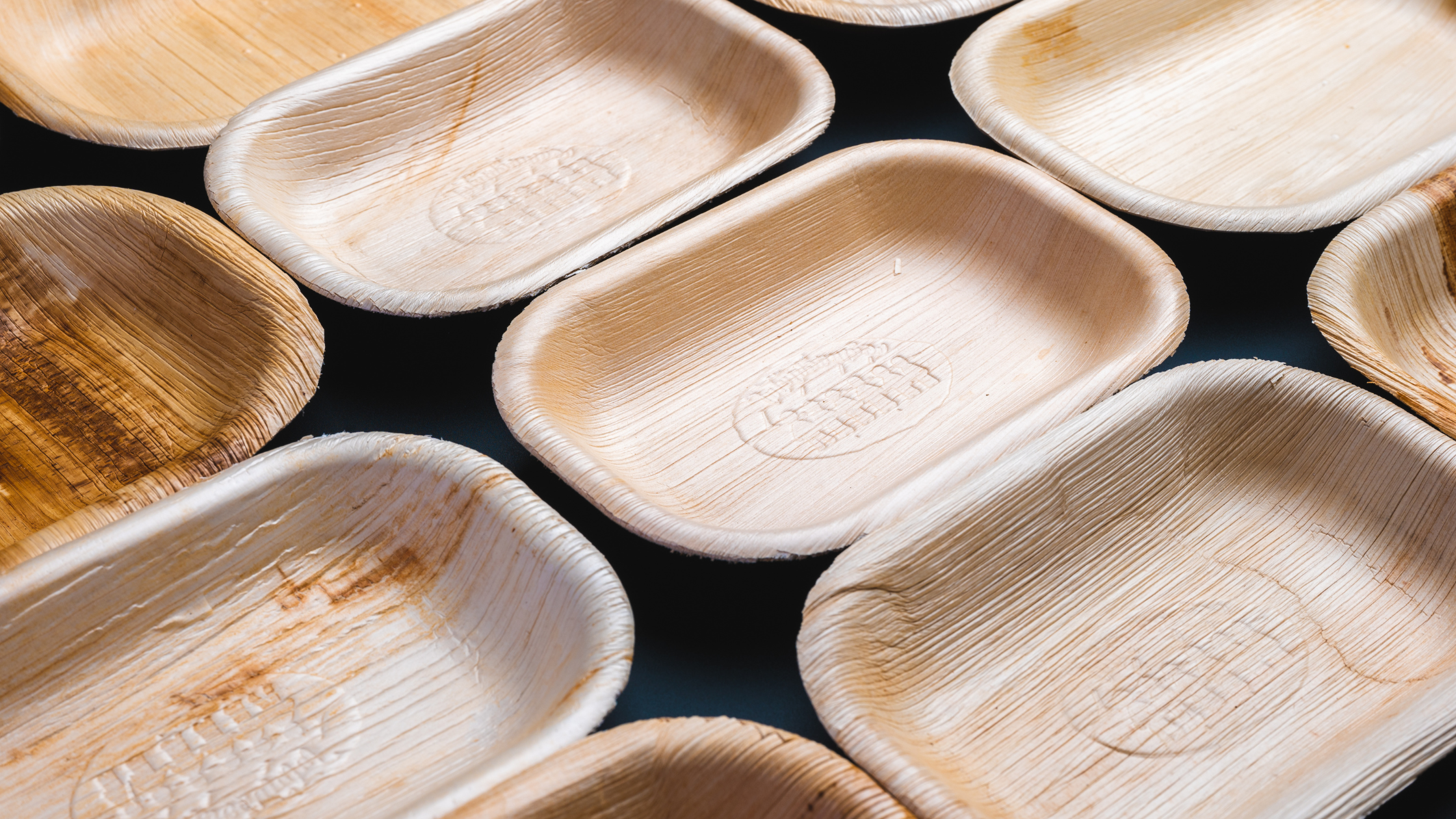Introduction
Disposable products have been our go-to for quick and easy meals, but it's no secret they're causing severe environmental trouble. The mountains of non-biodegradable waste they create are a big issue, and it's high time we consider more sustainable options. That's where eco-friendly disposable bowls come in, offering a ray of hope in our quest to ease the environmental burden.
Quick Tips:
- When grabbing disposable bowls, choose ones made from biodegradable materials like bamboo or sugarcane.
- Look for certifications on the packaging to ensure they're genuinely eco-friendly.
- Remember to dispose of these bowls responsibly by tossing them into the compost bin.
The Problem with Conventional Disposable Bowls
The typical disposable bowls we've been using, usually made of plastic or polystyrene, are the bad guys here. They stick around for ages, cluttering our planet, harming wildlife, and even affecting our health. Plus, throwing them away can be a real problem if you don't have proper waste facilities nearby.
The Rise of Eco-Friendly Disposable Bowls
There's a silver lining. Enter eco-friendly disposable bowls. These gems are made from bamboo, sugarcane fiber, or palm leaves. Not only are they biodegradable, but they also come from renewable sources. Manufacturing techniques have been revamped, too, reducing their environmental impact.
Advantages of Using Eco-Friendly Disposable Bowls
Switching to these eco-friendly bowls has a bunch of perks. For one, their production and disposal have a much smaller carbon footprint. That's good news for the environment. They also encourage a culture of responsible consumption, nudging individuals and businesses towards more eco-conscious choices. Plus, integrating them into waste management systems helps reduce landfill stress.
Challenges and Limitations
Of course, there are challenges on the horizon. One is the cost. Eco-friendly materials can be pricier, which might give some folks pause. Then there's the perception issue. Some worry that these bowls will hold up better, especially with hot or liquid foods. And there are compatibility concerns, too – certain foods and temperatures might not work well with these bowls.
Future Perspectives and Innovations
The future looks promising, though. Constant progress in technology and materials could make eco-friendly solutions even better. Researchers are looking into new materials and production techniques to increase sustainability and biodegradability. Collaboration between industry players, policymakers, and eco-warriors is essential to keep this green movement rolling.
Consumer Education and Awareness
Here's the deal: educating consumers about the environmental impact of their choices is crucial. Once people understand the benefits of eco-friendly disposable bowls and why proper waste disposal is a must, they're more likely to make eco-smart choices. Get the word out with educational campaigns and interactive initiatives. Let's empower folks to make greener decisions in their daily lives.
Material Diversity
Various environmentally friendly disposable bowls are on the market, made from diverse materials such as bagasse (sugarcane fiber), wheat straw, wood fiber, and even recycled paper. Each material has unique properties and benefits, catering to various preferences and requirements.
Customizability and Branding:
Many eco-friendly bowl manufacturers offer customizable options for branding and design, allowing businesses and individuals to add their logos, messages, or unique graphics to the bowls. This feature promotes the brand and communicates a commitment to sustainability to the consumers.
Heat Resistance and Insulation:
Some eco-friendly bowls have enhanced heat resistance and insulation properties, making them suitable for hot and cold food items. This feature ensures that the bowls maintain their integrity and functionality even when holding soups, stews, or other hot dishes.
Compatibility with Microwaves and Freezers:
Certain eco-friendly bowl materials are compatible with microwave heating and freezer storage, offering convenience and versatility for consumers. This makes them suitable for various food preparation and storage needs, accommodating busy lifestyles and diverse culinary preferences.
Hygienic and Non-Toxic:
Eco-friendly disposable bowls are often manufactured without harmful chemicals or toxins, ensuring that the food served in these bowls remains safe and free from contamination. This characteristic aligns with health and safety standards, making them a reliable option for food service businesses and household use.
International Standards and Certifications:
To maintain their good reputation, eco-friendly bowl producers frequently follow international guidelines and certifications, such as those offered by groups like the Forest Stewardship Council (FSC), the Biodegradable Products Institute (BPI), and the Sustainable Forestry Initiative (SFI). These certifications validate the sustainability and environmental claims of the products, assuring consumers and businesses alike.
Market Accessibility and Availability:
Eco-friendly disposable bowls are increasingly readily accessible in various retail outlets, including supermarkets, specialty stores, and online marketplaces. The growing demand for sustainable alternatives has prompted many suppliers to expand their product offerings, ensuring eco-friendly bowl options are easily accessible to a broad consumer base.
These additional insights highlight eco-friendly disposable bowls' diverse features and benefits, emphasizing their versatility, safety, and sustainability credentials. They underscore the evolving nature of eco-friendly product development and the increasing emphasis on practicality and user convenience within the sustainable consumer goods market.

Table: Comparison of Environmental Impact of Different Disposable Bowl Materials
|
Material |
Biodegradability |
Renewable Source |
Production Carbon Footprint |
Cost |
|
Plastic |
Low |
No |
High |
Low |
|
Sugarcane |
High |
Yes |
Moderate |
Moderate |
|
Bamboo |
High |
Yes |
Low |
High |
|
Palm Leaf |
High |
Yes |
Low |
Moderate |
Our Recommendation
Conclusion
The rise of eco-friendly disposable bowls is more than just a trend; it's a vital step towards a healthier, sustainable planet. When we opt for decisions that minimize our ecological footprint, we actively contribute to safeguarding the earth for future generations.


